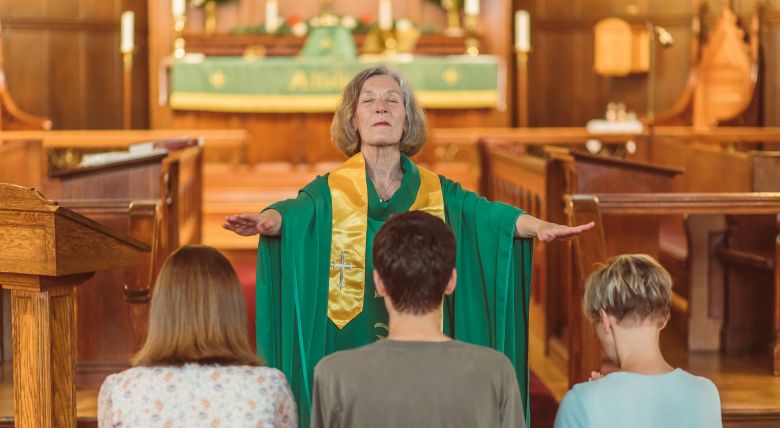
I grew up attending the Catholic church with my family. When I was about eleven, I asked if I could serve as an altar boy. The priest sternly scolded me, referring to the story of Eve’s fall and informing me I was only allowed to step on the altar platform if I was there cleaning, getting married, or if he called me up for something. I went home and told my mom that I wasn’t Catholic anymore. That was a long time ago and the world has changed. I’m now an ordained Unity minister and, today, little girls are allowed to serve on Catholic altars – but they still can’t become priests.
Similarly, the Southern Baptist Convention has recently expelled two churches for having female pastors. While I respect all faith traditions, I feel compelled to express my sorrow for women who hear the calling to serve but are forced to leave their chosen faith in order to answer their calling.
Let’s explore different faith traditions and scriptural references that might be interpreted to support and celebrate the inclusion of women in positions of equality and leadership. With a little research, I easily found common threads from different faiths that recognize the wisdom, spirituality, and guiding capacity of women in inspiring communities.
Scriptural References
Christianity
- Romans 16:1-2: These verses mention Phoebe as a deacon, indicating her active leadership role in the early Christian community.
- Luke 8:1-3: This passage acknowledges the women who traveled with Jesus and supported his ministry, including Mary Magdalene, Joanna, and Susanna. Their involvement demonstrates their significant contributions to Jesus’ spiritual movement.
Islam
- Qur’an 33:35: This verse speaks of both men and women who submit to God, emphasizing their equal spiritual status and potential.
- Qur’an 16:97: Highlighting God’s granting of knowledge and wisdom to all people, including women, this verse suggests their equal capacity for spiritual leadership.
Judaism
- Proverbs 31:26: Describing the virtuous woman, this verse praises her wisdom and teaching, recognizing her spiritual leadership within her household and community.
- Exodus 15:20: Miriam, Moses’ sister, is portrayed as a prophetess, leading women in song and dance after the Israelites’ deliverance from Egypt. Her role underscores the importance of women in guiding the community.
Hinduism
- Devi Mahatmyam: This Hindu scripture celebrates the divine feminine and recognizes the power and wisdom of goddesses like Durga, Kali, and Lakshmi, exemplifying the spiritual leadership women can embody.
- Rigveda 10.125.8: This ancient text highlights the equality of men and women in the pursuit of knowledge and spiritual growth
Buddhism
- Therigatha: This collection of poems attributed to enlightened Buddhist nuns offers insights into their spiritual journeys and showcases their leadership in spreading Buddhist teachings.
- The story of Mahapajapati Gotami: Mahapajapati, Buddha’s stepmother, played a crucial role in asking for the ordination of women and establishing the Order of Bhikkhunis (nuns). She nurtured and guided the female practitioner community.
These references were the first I came across in my research and, of course, they are subject to my own interpretation which might differ substantially from the interpretation of others. Still, I feel confident I could find many references of this nature if I gave myself more time to look for them. When spiritual concepts cross religious boundaries I think of them as universal in application. In this case, numerous scriptural references affirm the capacity of women to serve as spiritual guides and leaders. These verses underscore equality, wisdom, and the significant contributions women have made throughout history.
Recognizing and celebrating women as spiritual leaders is a vital step toward building inclusive religious communities that reflect the diversity and richness of the human experience.

















